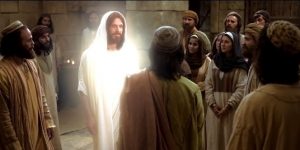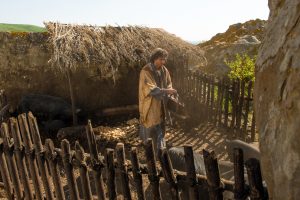 The parable of Jesus in the gospel of this Sunday (24th Sunday of Year A – Mt 18:21-35) is well-known but, I must admit, I never get used to its… demanding message!
The parable of Jesus in the gospel of this Sunday (24th Sunday of Year A – Mt 18:21-35) is well-known but, I must admit, I never get used to its… demanding message!
Simply put, the last verse says that if we do not forgive others, God will not forgive us either.
This makes me more than a little… uncomfortable!
I wonder if there is any one among us who does not find it hard, very hard at times, to forgive someone who has hurt us.
To forgive:
- Someone who has spread false rumours against us – ‘fake news’ is a current practice!
- Someone who has deprived us of a promotion which was truly deserved.
- Someone who has ‘stolen’ the love that was rightly ours from a spouse of many years…
And the list could go on, every example more painful than the previous one.
The deed may have been wicked, the outcome devastating, and the wound may seem incurable.
Every time I hear, or read, this gospel text, I feel inclined to tell the Lord: “You don’t really mean this, Lord!…”
But I know well that he does…
This time, having read the gospel, I went to the text of the 1st reading (Si.27:30 – 28:7)
and… the last verse caught my attention (in the French text):
“Ne garde pas de rancune envers le prochain…
et sois indulgent pour qui ne sait pas. »
The English translation of the Jerusalem Bible simply says:
“Do not bear your neighbour ill-will…
and overlook the offence.” (Si.28:7-8)
(The American Bible translation has: “Overlook a mistake”).
Neither of them gave the meaning I had found in the French words…
I kept searching and…
In the King James version I found this interesting translation:
“Bear no malice to thy neighbour… and wink at ignorance.”
These words immediately brought back to my mind the words Jesus spoke on the cross:
“Forgive them, Father, they do not know what they are doing” (Lc.23:34).
So often, it is so…
People do not realize, they can be foolish, but not really evil.
If they truly saw and understood, if they were aware of what their words and actions do to others, then… perhaps they would not do what they do…
When I feel like telling the Lord: “You don’t really mean this, Lord!…”, it seems to me that I hear:
“Of course, not… not on your own… but my Spirit is with you to enable you to do it…”
Personally, this is the only way I can stop protesting and … start pardoning – poorly, awkwardly perhaps, but sincerely.
Source: Image: LDS
 “I will make a new covenant with the people of Israel and with the people of Judah…
“I will make a new covenant with the people of Israel and with the people of Judah…

 The question of the apostles to Jesus in today’s gospel (Jn.9:1-41)
The question of the apostles to Jesus in today’s gospel (Jn.9:1-41)



 Who would not want to experience personally such acceptance, such mercy, such love?
Who would not want to experience personally such acceptance, such mercy, such love? Nowadays, people do not speak much about kingdoms; these political systems are somehow a legacy from the past. Kings and queens are still respected in many places, but their role is mostly ceremonial – the real power is in the hands of presidents and prime ministers. The people want to see themselves as citizens who can elect their leaders.
Nowadays, people do not speak much about kingdoms; these political systems are somehow a legacy from the past. Kings and queens are still respected in many places, but their role is mostly ceremonial – the real power is in the hands of presidents and prime ministers. The people want to see themselves as citizens who can elect their leaders.  appeared, yes, appeared from… nowhere!
appeared, yes, appeared from… nowhere!